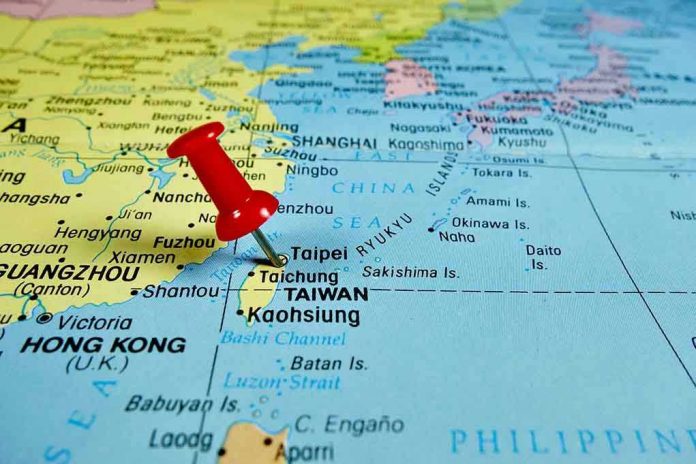
In a stunning diplomatic twist, the Trump administration reportedly blocked Taiwanese President Lai Ching-te’s transit through the United States, sparking international controversy and raising questions about America’s stance on Taiwan amid rising tensions with China.
At a Glance
- U.S. reportedly blocked Taiwanese President Lai Ching-te’s U.S. transit.
- The move is the first such refusal in over 30 years.
- Heightened diplomatic tensions between U.S., Taiwan, and China.
- Uncertainty looms over Taiwan’s diplomatic strategies and U.S. policy.
U.S. Blocks Taiwanese President’s Transit
The Trump administration’s decision to block President Lai Ching-te from transiting through the United States on his way to Latin America marks a significant shift in U.S. policy. For over three decades, Taiwanese presidents have been allowed to make transit stops in the U.S., a practice that, while unofficial, has served as a strong signal of American support for Taiwan. However, this recent move, reportedly aimed at appeasing Beijing, has sparked a wave of criticism and raised concerns over U.S. commitment to Taiwan amidst escalating tensions with China.
The decision has left many questioning the motives behind this unprecedented refusal. While the U.S. State Department has stated that “nothing was canceled” since no official travel plans were made, the timing and implications of the reported decision are clear. It comes at a time when Taiwan is striving to maintain its international presence, and Beijing is ramping up its pressure on countries to isolate Taiwan diplomatically. This development could potentially weaken Taiwan’s international standing and embolden Beijing’s efforts to undermine Taiwan’s sovereignty.
Diplomatic Fallout and Political Implications
The ramifications of this move extend beyond the immediate diplomatic fallout. For Taiwan, the refusal of U.S. transit could signal a wavering of American support, potentially affecting its relations with other international allies. In Taiwan, this incident occurs against the backdrop of significant legislative recall votes, adding to the domestic political tension. The Democratic Progressive Party, led by President Lai, has been pursuing a pro-sovereignty agenda, which has already drawn Beijing’s ire. Any perceived waning of U.S. support might embolden China’s efforts to sway Taiwan’s allies and influence its domestic politics.
Moreover, this incident could set a precedent for future U.S. dealings with Taiwan. By reportedly blocking Lai’s transit, the Trump administration might be signaling a shift in its China policy, using Taiwan as a bargaining chip in broader U.S.-China relations. The long-term implications of this maneuver could affect not only Taiwan’s diplomatic strategies but also the broader geopolitical dynamics in the Indo-Pacific region.
Strategic Considerations and Future Outlook
As the dust settles on this diplomatic debacle, the strategic considerations for the U.S., Taiwan, and China remain complex. For the U.S., balancing its relationship with China while maintaining its commitment to Taiwan is a delicate act. Any perception of weakness could undermine American influence in the region and encourage further assertiveness from Beijing. For Taiwan, the challenge lies in navigating these turbulent waters while maintaining its international legitimacy and strengthening its ties with allies.
In the coming months, the world will be watching closely as this situation unfolds. Will the U.S. reaffirm its support for Taiwan, or will it continue to use Taiwan as leverage in its dealings with China? How will Taiwan adapt its diplomatic strategies in response to this apparent shift in U.S. policy? These questions underscore the uncertainty and high stakes involved in this complex geopolitical landscape.
Sources:
Institute for the Study of War







